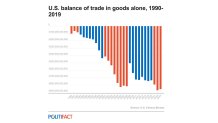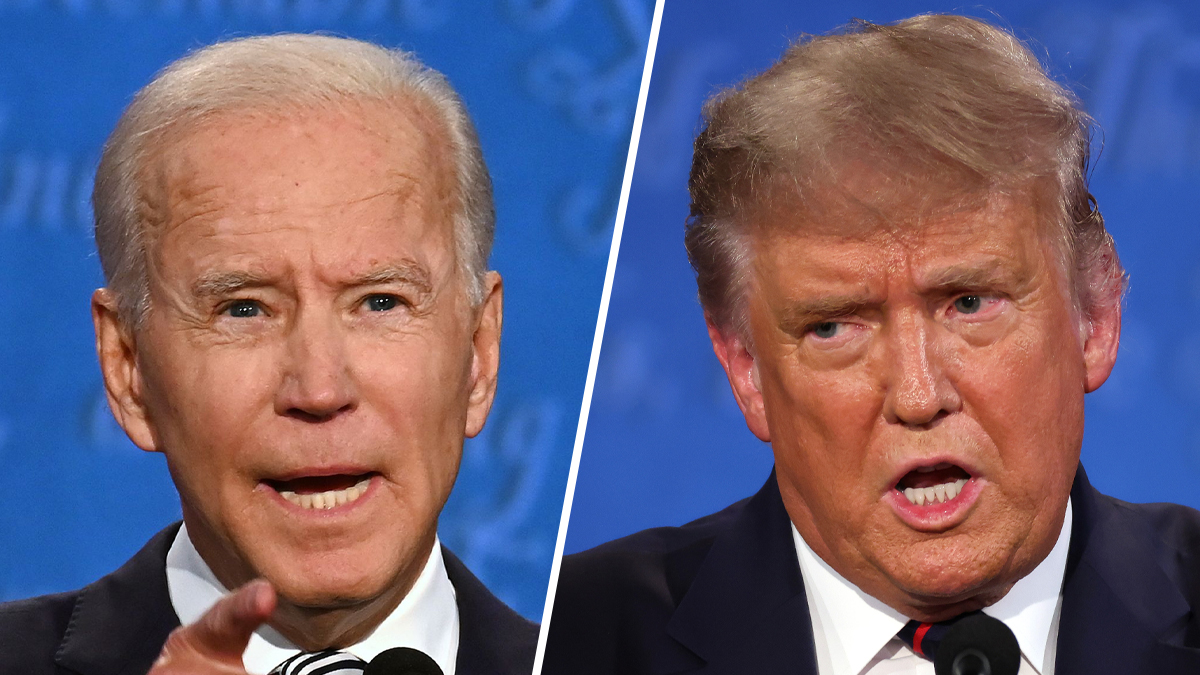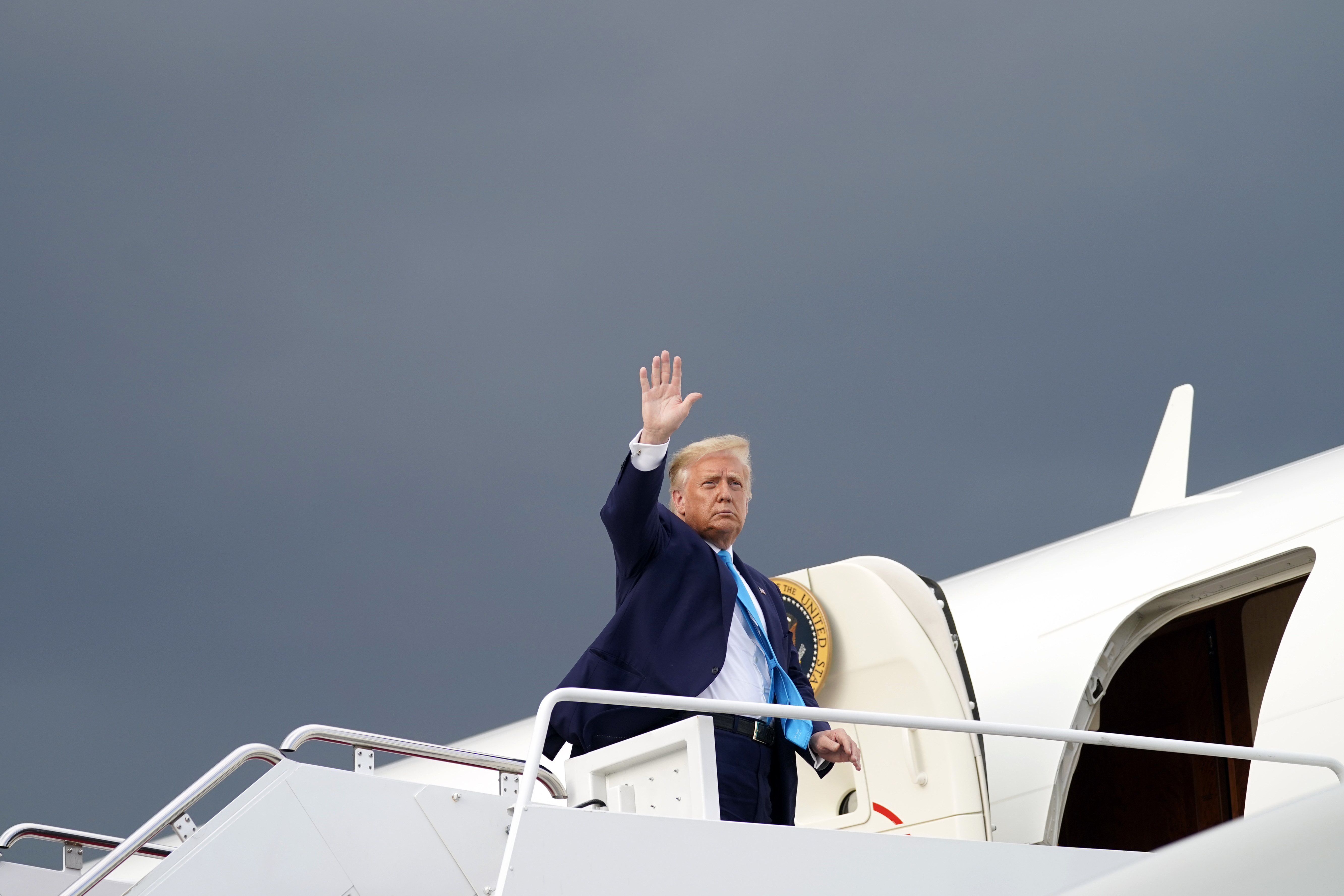
If Your Time is Short
- The trade deficit in goods was higher under Trump in 2018 and 2019 than during any previous year, though that was not the case in 2017
- However, this ignores the substantial trade surplus in services
- When services are factored in, the overall trade deficit was larger in five separate years during George W. Bush’s administration than it has been under Trump
Democratic presidential nominee Joe Biden tailored a portion of his remarks in Warren, Mich., to a key concern for voters in the heavily industrialized battleground state: international trade.
"Under President Trump, the U.S. trade deficit has grown," Biden said in the Sept. 9 speech. "It’s hit an all-time high. Let me say that again. U.S. trade deficit is at an all-time high under Trump in the last three years."
Is that correct? It depends on which measurement you use.
The trade deficit is essentially a comparison of a country’s imports and exports. If there are more imports than exports, the country will have a trade deficit. If there are more exports than imports, the country will have a trade surplus. The United States hasn’t had a trade surplus since the early 1970s, but the scale of deficits has varied widely.
There are two main measurements for trade deficits. One looks only at goods, which are tangible products. Another looks at both goods and services, which can be anything from legal and accounting services to payments for intellectual property.
In recent years, the United States has had a persistently high trade deficit in goods, but a growing surplus in services. When those two are put together, the deficit in goods and services tends to be smaller than the deficit in goods alone.
If you look at the deficit in goods alone, Biden is right: The U.S. goods deficit was larger in 2018 and 2019 than in any previous year. (Contrary to what Biden indicated, the 2017 goods deficit was a bit smaller than the goods deficit in 2006, 2007, and 2008, under President George W. Bush.)
Here’s a chart, with the president’s party noted by color, red for Republicans and blue for Democrats:

However, if you look at the deficit in goods and services, Biden’s statement flips to being incorrect. The deficit in goods and services was larger under Bush in 2004, 2005, 2006, 2007, and 2008 than in any year under Trump.

The difference is that the surplus in services has grown substantially since the Bush years. The U.S. surplus in services grew more than fivefold between 2004 and 2019. This gain in services has shaved the size of the overall trade deficit under Trump to levels below what it was under Bush during the mid-2000s.
At the same time, the goods-and-services deficit is higher now than it was during any year of Barack Obama’s administration, in which Biden served as vice president.
The Biden campaign told PolitiFact that while it wasn’t an all-time high, the overall trade deficit did hit a 12 year high.
It’s worth noting that Biden isn’t the only political figure to cherry-pick trade deficit statistics that suit his talking points. Trump himself has focused on the goods deficit and ignored the goods-and-services deficit in a way that exaggerates the trade deficit figures he inherited.Our ruling
Biden said the "U.S. trade deficit is at an all-time high under Trump in the last three years."
The trade deficit in goods was indeed higher under Trump in 2018 and 2019 than in any previous year, though that was not the case in 2017.
However, this ignores a substantial surplus in services. When services are factored in, the overall trade deficit was larger in five separate years during George W. Bush’s administration.
We rate the statement Half True.
RELATED CONTENT
Our sources:
- Joe Biden, speech in Warren, Mich., Sept. 9, 2020
- U.S. Census Bureau, "U.S. Trade in Goods and Services - Balance of Payments (BOP) Basis," accessed Sept. 11, 2020
- U.S. Census Bureau, "Trade in Goods with World, Seasonally Adjusted," accessed Sept. 11, 2020
- Federal Reserve Bank of St. Louis, "U.S. Trade Deficit Driven by Goods, Not Services," June 27, 2017
- FactCheck.org, "Biden’s False Statement About the Trade Deficit," Sept. 10, 2020
- PolitiFact, "Has US racked up $2 trillion in trade deficits since NAFTA began?" Oct. 1, 2018
- Email interview with Ross Burkhart, Boise State University political scientist, Sept. 11, 2020



